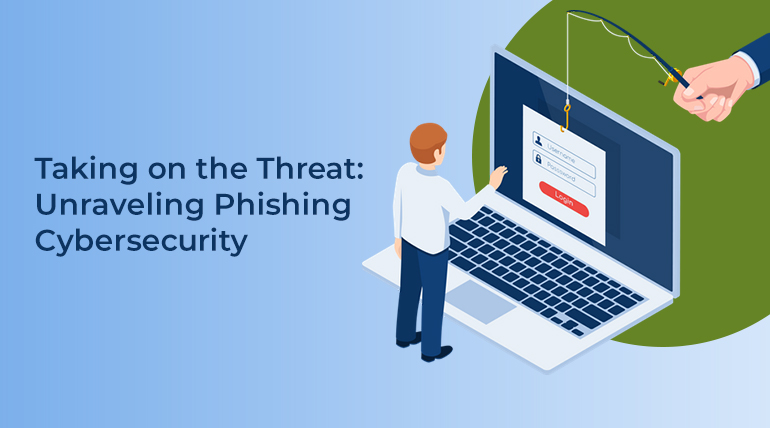In 2022 alone, cybercrime costs worldwide reached a shocking $6 trillion. This shows just how important strong cybersecurity is.
As tools like ChatGPT, powered by AI, become more common, they bring great benefits but also new challenges in ChatGPT cybersecurity.
These tools can do amazing things, but they also bring new risks. This blog will explain the possible dangers of ChatGPT cybersecurity and how we can protect against them.
Picture This
You’re the CEO, and at 2 AM, your phone rings. An email from your tech lead. You open it and your stomach sinks. A cyber attack. Critical data’s been breached and your clients are in danger. Sound familiar?
Sadly, this “what is a cybersecurity threat” scenario is all too tangible, transpiring every 39 seconds.
Phishing 101: The Sneaky Cybersecurity Threat
Let’s break this down. Imagine malware as a sly thief, tiptoeing into your office at night, swiping precious data. Ransomware?
That’s the kidnapper holding your data hostage for a hefty ransom. And phishing, the clever con artist, tricking your team into spilling confidential info.
These are the cybersecurity threats that can wreak havoc on your business, shattering customer trust, tarnishing your brand, and costing you a fortune.
The Ripple Effect: ChatGPT Cybersecurity Risks in B2B
In the B2B world, these risks are magnified. A breach in your cybersecurity doesn’t just hit you – it sends shockwaves through your partners, clients, and their data.
Unexpectedly, you’ve become a ChatGPT cybersecurity risk to everyone you do business with. And once again, you wonder, but this time what is a ChatGPT cybersecurity threat, posing risk to everyone you engage with in business?
AI to the Rescue: How AI Affects Cybersecurity
But there’s a silver lining. Our defenses are beefing up, thanks to advancements in AI and machine learning. OpenAI’s ChatGPT is a game-changer, but like all powerful tools, it carries risks.
It’s crucial we understand how AI affects cybersecurity, turning potential AI cybersecurity threats into opportunities for strengthening our defenses.
Stepping Forward: Protecting Your Business Against Cybersecurity Risks
Let’s take this journey together, tackling these threats and mastering our defenses. In today’s digital world, being ready to handle AI cybersecurity threats isn’t just smart; it’s a must.
Ready to get started?
AI and Cybersecurity: A Two-Sided Coin
Isn’t it fascinating how AI is reshaping almost every industry, including cybersecurity?
By 2026, it’s expected that the AI in cybersecurity market will skyrocket to $38.2 billion from $8.8 billion in 2019. That’s a pretty big jump, don’t you think?
So, how will AI affect cybersecurity?
It’s simpler than you might think:
1. Spotting Trouble: AI can go through heaps of data in seconds. It finds patterns and odd bits faster than any human, making it great at early detection of what is a cybersecurity threat.
2. Quick Action: With AI, the response to cyber threats is almost immediate. It’s like having an alert security guard who’s always up, ready to react.
3. Future Sight: AI learns from past incidents, helping it predict future threats. It’s like having a crystal ball that warns you about potential cybersecurity risk examples
But there’s a twist. While AI, like a superhero, can defend us, it can also be used by the other side. AI tools like ChatGPT are increasingly being used for both defense and offense in ChatGPT cybersecurity.
This dual nature of AI in cybersecurity makes it crucial for us to understand AI cybersecurity threats and how to counter them.
ChatGPT: Bridging the Digital Communication Divide
Ever dreamt of a tool that could write emails, respond to queries, or even draft reports for you? Your wish has just come true.
Say hello to ChatGPT, a mighty AI tool cooked up by OpenAI.
Before we dive into what this tool does, let’s rewind a bit and explore why it was born.
The digital world was hungry for smarter, smoother ways to get tasks done. Spotting this need, OpenAI whipped up ChatGPT to reshape how we communicate and process information online.
ChatGPT: Your Digital Wordsmith
So, what exactly is ChatGPT? Technically, it’s an advanced language model trained on a variety of internet text. But in simpler terms? Think of it as your smart digital buddy, able to understand and create human-like text.
The Game-Changer: Why ChatGPT Is a Big Deal
Here’s why you should care about ChatGPT:
1. Efficiency: ChatGPT isn’t just any AI – it’s your digital helper. It tackles those boring tasks, like drafting emails or writing reports, freeing you up to focus on the work that really matters. Time equals money, and ChatGPT is here to save you plenty of both.
2. Versatility: ChatGPT is like a multi-tool in the AI world. Need top-notch customer service? Check. Dynamic content creation? Double-check. From the front end to the back end, ChatGPT’s uses are as wide as they are varied.
3. Simplicity: Think of ChatGPT as your personal data translator. Complex datasets might seem like a foreign language, but ChatGPT breaks them down, creating easy-to-understand and engaging text. It’s like having a language tutor for data – making sure nothing gets lost in translation
But, like all powerful tools, ChatGPT comes with its risks, especially when it comes to ChatGPT cybersecurity.
Let’s unravel these ChatGPT cybersecurity risks and talk about how to shield against them. It’s a journey of discovery, so stick with us.
ChatGPT and Cybersecurity: Revealing the Risks
As remarkable as ChatGPT’s capabilities are, it’s time to tackle the big issue – the potential ChatGPT cybersecurity risks.
When it’s about AI cybersecurity threats, ChatGPT isn’t safe either.
The Hurdles Ahead: AI Cybersecurity Threats
Here’s what we should be concerned about:
Mimicry: ChatGPT can create human-like text. If this falls into the wrong hands, it could be used to pretend to be individuals or companies, leading to phishing cybersecurity issues or misinformation.
Data Spillage: ChatGPT replies are based on the data it learned from. There’s a risk, even if it’s small, of it accidentally spilling out sensitive information.
Twisting Words: ChatGPT’s advanced language skills could be used to create persuasive, targeted scams or spread harmful content.
AI and Cybersecurity: Lessons from Reality
To understand the stakes better, let’s look at some real-life cybersecurity risk examples involving AI tools.
Deepfakes: These are fake images or videos, made using AI, that look like real people. Deepfakes have been used for scamming and spreading fake news.
AI-Driven Phishing: Cybercriminals are using AI to make convincing phishing emails that trick people into giving up sensitive information.
While these examples might seem scary, it’s crucial to remember that knowing what’s out there is the first step towards protecting ourselves.
Next, we’ll explore how we can lessen these risks and use the power of ChatGPT safely. Hang in there, we’re about to dive into the solution side of things.
Taking on the Threat: Unraveling Phishing Cybersecurity

Let’s zero in on one of the most common AI cybersecurity threats: phishing. Phishing is like a digital trickster coaxing you into spilling your secrets, and with AI tools like ChatGPT, these tricks might get even more believable.
So, how do we fight this?
Here’s your game plan to fortify against these possible breaches:
Education: Knowledge is your armor in this digital battlefield. Understanding the risks and educating your team about potential threats is like arming everyone with an anti-cybercrime shield. Awareness is your first line of defense to dodge the traps set by cyber tricksters.
Verification: Trust, but double-check. If an email seems off or if it’s overflowing with too-good-to-be-true promises, it’s time to play detective. Examine the sender’s details, treat links or attachments from unknown sources like they’re radioactive – don’t touch them!
Update and Patch: Stay a step ahead. Cybercriminals love exploiting known software weak spots, but you’ve got the remedy – regular updates and patches. It’s like strengthening your digital fortress, keeping the infiltrators out.
Beyond Key: Your Cybersecurity Navigator
That’s where Beyond Key steps in. We’re your reliable guide, helping you navigate this landscape safely and confidently.
Here’s how we do it:
Risk Assessment: Think of us as your digital sleuths, combing through your systems for weak spots. We don’t just spot the vulnerabilities – we help you understand them, giving you a clear map of where the risks are.
Custom Security Solutions: We’re the tailors of cybersecurity, designing custom solutions that perfectly fit your specific needs. Whether it’s lurking phishing threats or potential data leakage, our solutions are designed to protect you from them all.
Ongoing Support: Cybersecurity isn’t a sprint – it’s a marathon. And we’re in for the long run. We’re your unwavering support crew, offering continuous help to keep you one step ahead of emerging threats.
Beyond Key: Your Cybersecurity Guide in the ChatGPT Terrain
Sailing the murky seas of cybersecurity can make you feel lost. With threats hidden in every nook and cranny, it’s easy to feel swamped. But fret not. Beyond Key is here to be your beacon, your guiding light in these uncertain times.
Safeguarding Your ChatGPT
1. ChatGPT technology is a wonder, but it’s not without its pitfalls. Here’s how we can help you steer around and alleviate these hazards:
2. Exposed Data: Picture your data, securely stowed in a digital safe, as secure as a vault. Robust encryption protocols aren’t just add-ons; they’re the norm. It’s your own stronghold in the realm of digital threats.
3. Bot Invasions: Your digital bodyguards have arrived. Your systems are reinforced with sturdy authentication protocols and are kept fresh with the latest patches. Bot invasions? They don’t stand a chance.
4. Data Seepage: Your system has eagle-eyed sentinels. With stringent access controls and vigilant system activity scanning, only the permitted can enter, and suspicious activity gets shown the door.
5. Malware Infestations: You’ve got your own digital sanitation crew. Regular system sweeps for malware and top-tier protective actions keep your digital landscape clean and fit.
6. Unauthorized Entries: Think of a guard for your digital gateway. Robust passwords and two-factor authentication are enforced. Gatecrashers? They’re not getting through.
7. Brute Force Onslaughts: You’ve got a shield against digital assaults. Automated surveillance spots dubious activities and halts hackers before they strike.
8. DDoS & Spam Ambushes: Your digital fire brigade is on the task, of scrutinizing network traffic and smothering malicious requests before they ignite any damage.
9. Information Flood & Limitations: Your system is akin to a well-structured library. It’s built to manage high traffic and leverages AI to handle data floods smoothly.
10. Phishing: Your team is getting trained to identify phishing attempts and avoid them. They’re becoming digital fishing gurus.
11. Privacy & Confidentiality Concerns: Your user data is safeguarded with secure communication protocols and data encryption. Your secrets remain secret.
12. Supply Chain Hazards: You’ve got your own digital inspectors, periodically examining third-party providers and ensuring they comply with top security standards. You’re shielded from all sides.
13. Inadequate Logging & Auditing: Your system is equipped with a thorough logging setup, tracking every hint of suspicious activity. Your past acts as a roadmap to a secure future.
You can learn more about our services here.
Wrapping Up
It’s 2023. Cyber threats? They’re not fiction, they’re fact. But at Beyond Key, we’ve got your back.
We’re more than a service provider, we’re your security sentinels. We keep your ChatGPT tech under lock and key while you ace your business game. So, let’s do this together, and make cybersecurity more than a buzzword.
It’s our promise to you because your security is our success.
Frequently Asked Questions
What are the cybersecurity risks of ChatGPT?
ChatGPT cybersecurity risks can range from data leaks to unauthorized access. The “what is a cybersecurity threat” question becomes relevant here. Just imagine a sneaky thief (like malware) breaking into your office and stealing data. Or even worse, consider a clever scam artist (phishing cybersecurity) tricking your team into revealing confidential information. These are all possibilities if your ChatGPT isn’t secured properly.
Are there any security risks with ChatGPT?
Yes, there are. While ChatGPT is a game-changer, it can also become a “what is a cybersecurity threat” example if not used carefully. Unchecked, it can open doors to phishing attacks, data breaches, and more. So, it’s critical to stay updated with the latest security protocols and safeguards to minimize these risks.
What are the security risks associated with ChatGPT?
The security risks associated with ChatGPT primarily revolve around data security and privacy. For instance, if someone unauthorized gains access to your ChatGPT, they could misuse it to extract sensitive information. This is one of the many cybersecurity risk examples that could occur with ChatGPT if appropriate measures are not taken.
Will ChatGPT affect cybersecurity?
Absolutely, ChatGPT will affect cybersecurity. It’s a powerful tool that can help enhance security measures but it can also pose new challenges. The question “How will AI affect cybersecurity” is increasingly relevant. While AI can help detect and prevent threats faster, it can also introduce new AI cybersecurity threats if misused, underscoring the need for robust security strategies.
Does ChatGPT protect privacy?
ChatGPT itself doesn’t protect privacy, but how it’s used and secured does. It’s a tool, and like any tool, its safety depends on how it’s handled. Proper data handling practices, robust authentication protocols, and continuous monitoring can help ensure that ChatGPT doesn’t become a ChatGPT cybersecurity risk to your privacy.













